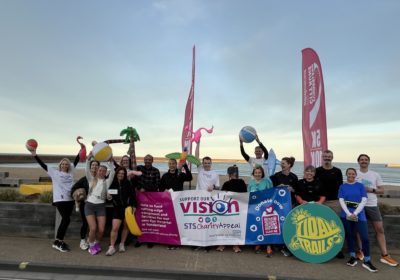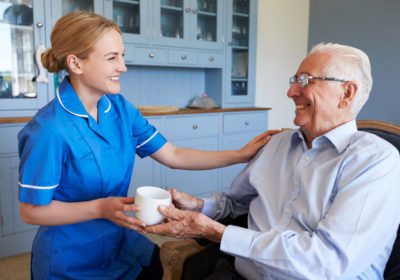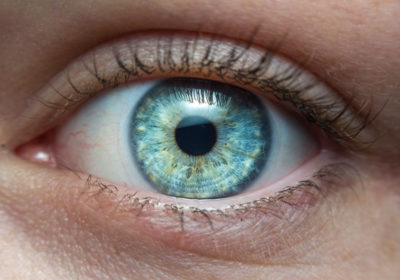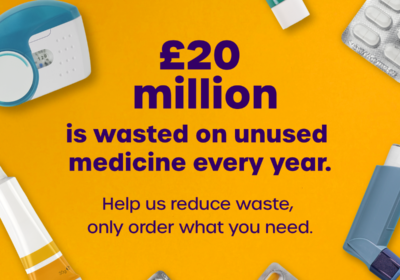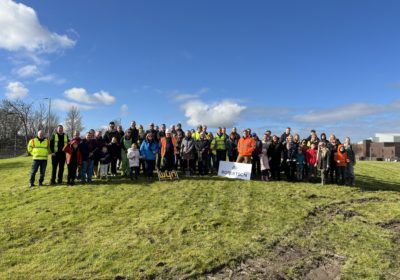New data shows that over 25,000 free saliva test kits have now been requested and delivered as part of the NHS Jewish BRCA Testing Programme since its launch in January 2023.
Around 11,000 tests have now been processed, with 235 people (2.1%) testing positive for a BRCA gene mutation, which increases the risk of breast, ovarian and prostate cancer, enabling them to seek early access to screening and preventive options – and thousands of others given reassurance that they do not carry the gene fault.
The programme is part of a major NHS drive to detect cancers earlier when they are easier to treat, helping to better identify people who are at increased risk to help prevent more cancers and save lives.
Under the programme, BRCA gene testing is offered for anyone living in England, aged 18 or over with at least one Jewish grandparent, regardless of faith, religious practice, or any other criteria.
Tests can be ordered online from the NHS and completed at home, by taking a sample of saliva and sending it off to a laboratory.
Those born with altered BRCA1 and BRCA2 genes have a greater risk of developing breast, ovarian, prostate or pancreatic cancer.
People with Jewish ancestry are far more likely to have inherited faulty BRCA genes than the general population. For example, one in 40 Ashkenazi Jews and around one in 140 Sephardi Jews having a faulty BRCA gene, compared to around one in 250 of the UK general population.
Research also shows, that up to 40% of ovarian cancer cases, and 10% of breast cancer cases in the Jewish community are associated with a BRCA gene fault.
People who are found to have altered BRCA genes are given early access to NHS cancer detection services such as mammograms or MRI scans; and may also be offered preventative surgery or medication, and advised to make risk-reducing lifestyle changes.
NHS England developed its programme in partnership with charities Jnetics and Chai Cancer Care, who have run highly successful engagement campaigns to raise awareness in Jewish communities, encouraging over 25,000 people to come forward for a free test in the first 2 years.
Health chiefs said the testing programme gives individuals who test positive the knowledge to make informed choices and allows them to access a range of options available on the NHS.
Professor Peter Johnson, NHS National Clinical Director for Cancer, and Professor of Medical Oncology at the University of Southampton, said: “It’s encouraging that so many people have come forward for testing and that hundreds living with an increased risk have been identified and can now be supported to make informed choices about monitoring and risk-reducing options.
“We want as many people as possible to take advantage of this innovative testing programme, so please continue to come forward for a simple saliva test if you are eligible. If you are sitting on a testing kit at home, we encourage you to complete and return the testing kit. The majority of people won’t be variant carriers of the BRCA gene, but if you are, the NHS can provide you with appropriate screening or treatment.”
Adam, 59 years-old from London who tested positive said: “Knowing that you’re BRCA1 positive, that you have a mutation that you may have passed onto the kids, can feel very overwhelming. For me, it was guilt. But we live in a day and age that means we can actually test for this. Because of the incredible support and expertise of Jnetics, Chai and the NHS it is amazing to see the options that are available for me and my family.”
Sami Webber, a 33-year-old bookkeeper from Hertfordshire, tested positive following her mother passing away from cancer and has since had two daughters through pre-implantation genetic testing. Sami said: “I feel like my mum gifted that to me, and what is in our control has been controlled. Neither of my daughters have an altered BRCA1 gene. That now ends in my line of generations through my side of the family. I am taking all the steps I can so that I can be there for my children and their children if they choose to have them in the future. I will only forever feel grateful for this test.”
On 15 January 2025, Jnetics and Chai Cancer Care will be hosting a national reception in North West England to raise further awareness of the NHS Jewish BRCA Testing Programme.
Jnetics CEO Nicole Gordon said: “We are proud to be part of this ground-breaking programme that has proven to be a resounding success in the first year. We are pleased with the uptake of the programme across all sectors of the community from the religious to the unaffiliated. Our mission now is to continue to drive awareness, giving individuals the opportunity to gain knowledge that will help mitigate against the impact of hereditary cancer and ultimately save lives.”
Lisa Steele, Chief Executive at Chai added: “We know it can be daunting to test positive for the BRCA gene mutation. However, finding out means people can make informed choices and get the support they need from us at Chai Cancer Care, Jnetics and the NHS. For more than 30 years Chai Cancer Care has been supporting members of the Jewish community affected by a cancer diagnosis and this programme can have a life changing impact for generations to come.”
The testing is being carried out by the NHS Genomic Medicine Service through its network of laboratory hubs, which is helping the NHS to harness the power of genomics to revolutionise the prevention and treatment of disease and reduce health inequalities.
Minister for Public Health and Prevention, Andrew Gwynne, said: “For the 11,000 people who have tested, the NHS Jewish BRCA Testing Programme provided reassurance and education around the risks of cancer. But for 235 of those people, it gave them vital extra time to make informed decisions around lifestyle choices and treatments.
“We’re working to catch illness on time, so I urge people to come forward and test if they’re eligible. Our Plan for Change will broaden access to community diagnostic centres and surgical hubs and make better use of tech, including the NHS App, to end the appointment backlog and fight cancer on all fronts.”


